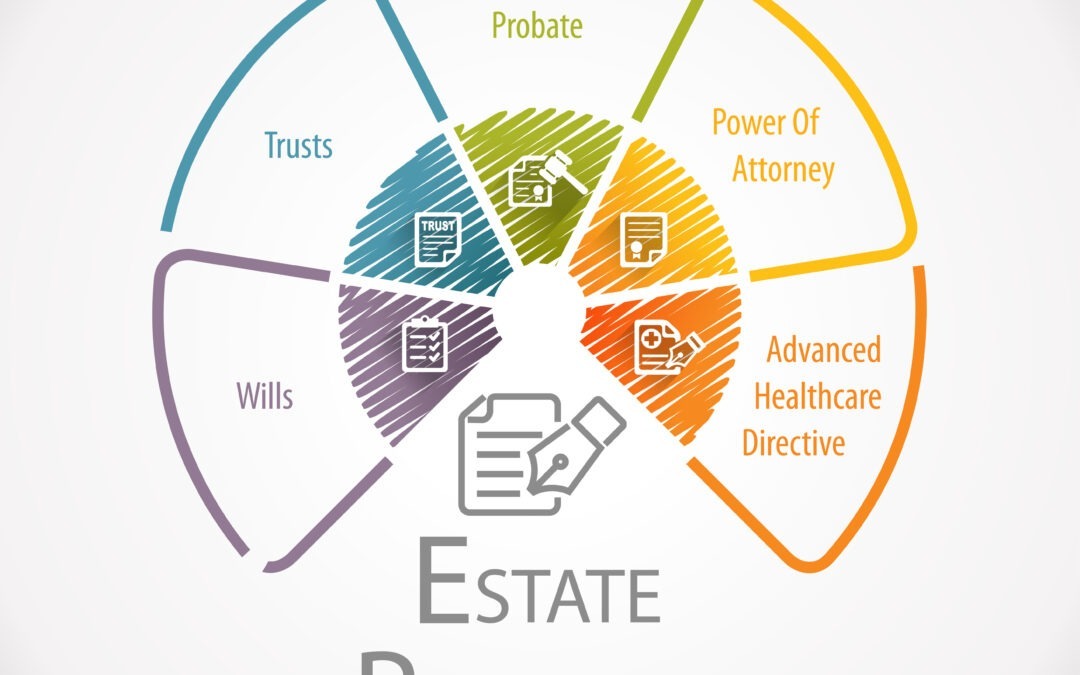Preparing for Estate Planning.
Estate Planning. How prepared are you for your future and the future of your loved ones? Sadly, most people are unprepared for the time when they may become incapacitated or die. There are many reasons for this lack of preparation. Some people believe they are too young to worry about such things. Some folks don’t want to think about their mortality. Some believe a simple will is all that’s needed. Some people see the estate documents they prepared years ago as sufficient. Whatever the reason, being unprepared is never a smart idea — not for you and not for your family.
While some people think a will is the only document you will ever need, that thinking can get you into trouble. Yes, it is very wise for any adult with any valuable assets to have a well drafted will. However, true protection goes a lot further. The complete estate plan includes a valid Will, the Trust, the Power of Attorney, the Healthcare Directive, and the Assignment of Assets document.
Estate Planning. The Trust.
When planning for your estate in California, if you have assets, your first document should be the Trust. You cannot overlook the importance of setting up a Trust. If you reside in the state of California, there is no excuse not to have one. While your taxes may not be eliminated, they may be reduced. And with a valid and fully-funded Trust, you can potentially avoid probate and the extra expense and time that goes along with administering the estate through probate. Trusts can give you greater control over your estate, how it is divided, and how and when assets are distributed. Then there is the matter of privacy. Unlike probate, trusts are not a matter of public record. There are various ways to set up a trust so that it specifically suits your needs now and after you have passed. You can even set up special trusts for the care and maintenance of disabled relatives, pets, and other loved ones.
Estate Planning. The Will.
When a Trust is part of the entire estate plan, we call the Will a Pour-over will, because it catches anything accidentally not included in the Trust. At a bare minimum, your estate plan should include a Will. However, as earlier mentioned, if you have valuable assets, consider having a trust prepared. It is important to know that if you have a Will but no Trust, your estate will go through Probate.
Estate Planning. The Healthcare Directive.
Then there is the all-important issue of the Healthcare Directive. This document informs your family, and any medical professionals who might be attending to your needs, of your wishes when it comes to your healthcare. It also enables you to name a person called, the Agent or the Attorney-in-Fact to make your healthcare decisions for you, based on your desires. How many times do people become very ill and their family is left thinking, or fighting over, what medical procedures or lack thereof should be performed? Unfortunately, this happens all too often. The Healthcare Directive allows you to choose a primary physician, where and if you will be buried, and a number of other items.
Even if you have been proactive in regards to your estate planning and have all of your documents in order, it is extremely important to know exactly what is in those documents and know exactly what you are agreeing to before signing on the dotted line. I can’t stress this point enough! Proper planning and precise legal documentation are the keys to protecting yourself, your estate and your family.
Estate Planning. Power of Attorney.
Let’s not forget about the all-important Power of Attorney. Suppose you become terminally ill and/or incapacitated to the degree you cannot manage your affairs, who will look out for your financial interests? Who will pay your bills? Who will watch over your investments? Who will make bank deposits or withdrawals for you? Who will handle issues regarding insurance and government benefits? Without proper agency documents, such as the Power of Attorney, your family members may wind up in a nasty and protracted court battle to determine who will handle these things on your behalf. If you are not bothered by your family “duking it out” on your behalf, then ignore my warning. If you care, make sure your desires are clearly, explicitly, and expressly understood.













